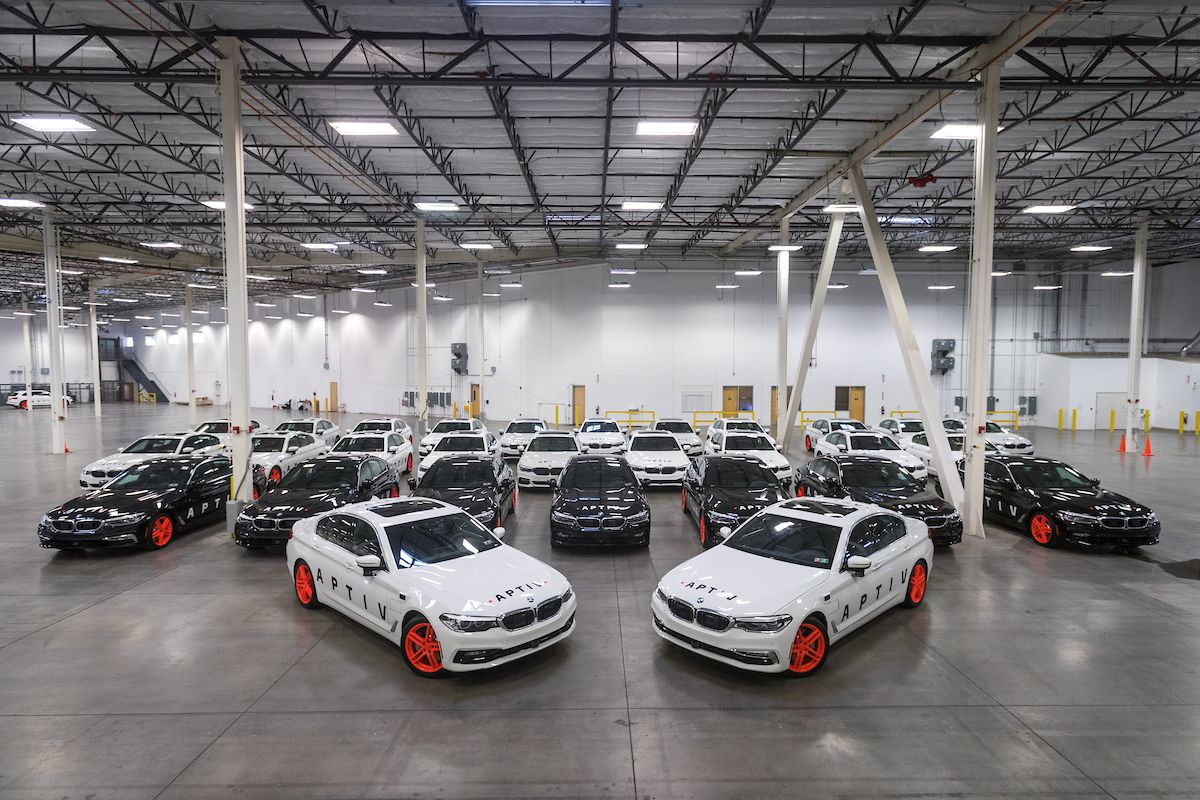Lyft and self-driving technology company Aptiv have been operating a small fleet of self-driving cars in Las Vegas since the Consumer Electronics Show last January. And today, the companies say they’ve reached a new milestone in their partnership: 5,000 paid rides.
Lyft and Aptiv claim to be operating the only commercial robot taxi service in the US, and perhaps the world. And while there are a number of ride-hailing pilots taking place around the country — Waymo in Phoenix, Cruise in San Francisco, Voyage in Florida — none are yet charging customers to ride in their self-driving cars. Waymo is expected to launch a commercial ride-hailing product in Arizona later this year.
Lyft and Aptiv’s fleet in Las Vegas is modestly sized, just 20 vehicles servicing around the same number of popular destinations along the Las Vegas Strip. They are part of a larger fleet of 75 vehicles that is kept in the city by Aptiv, an offshoot of global auto parts supplier Delphi. The companies hope to add 10 cars to the operation in the coming weeks, as well as new destinations in downtown Las Vegas.
“We really want this to be something accessible to all Lyft passengers in Las Vegas,” Jody Kelman, product lead for the company’s self-driving platform, told The Verge. “Everyone from your grandma to the bachelorette party.”
/cdn.vox-cdn.com/uploads/chorus_asset/file/12324137/APTIVgarage07__1___3_.jpg)
When users open the Lyft app in Las Vegas, they are given the option to opt into in the self-driving pilot. Once a user begins the booking process, if the system plans to send them a self driving vehicle, then the customer can accept or decline receiving a self-driving car at that time. The trips cost the same as a human-driven Lyft ride (no self-driving surcharge) and the revenue is divided between the companies, though neither would disclose the exact details of the deal.
A backup driver remains behind the wheel to take control when needed. The companies wouldn’t say how many disengagements, when the vehicle forces the human driver to take the wheel, they’ve recorded over the course of the operation so far, nor would they disclose the total miles driven.
The self-driving hardware and software is developed by Aptiv, while the ride requests and payments are handled by Lyft. The San Francisco-based ride-hailing company is also working with NuTonomy, a subsidiary of Aptiv, on a self-driving pilot in Boston.
Because the rides are connected via Lyft, the companies are able to solicit feedback from riders about their self-driving experiences. Kelman said the rides have received an average of 4.96 stars.
As Uber slims down and scales back its self-driving program in the wake of a fatal crash in Arizona earlier this year, Lyft is plowing ahead with its own project. Part of that is teaming up with other companies like NuTonomy and Aptiv, and another is developing its own technology at a newly built R&D facility in the Bay Area.
“One of the things that’s really different about this for us is that we think of this as a scaled program,” Kelman said. “In starting to charge our passengers for rides, that’s really for us a notable transition into something we want to continuously operate on the Lyft network as a real part of our transportation operation.”
